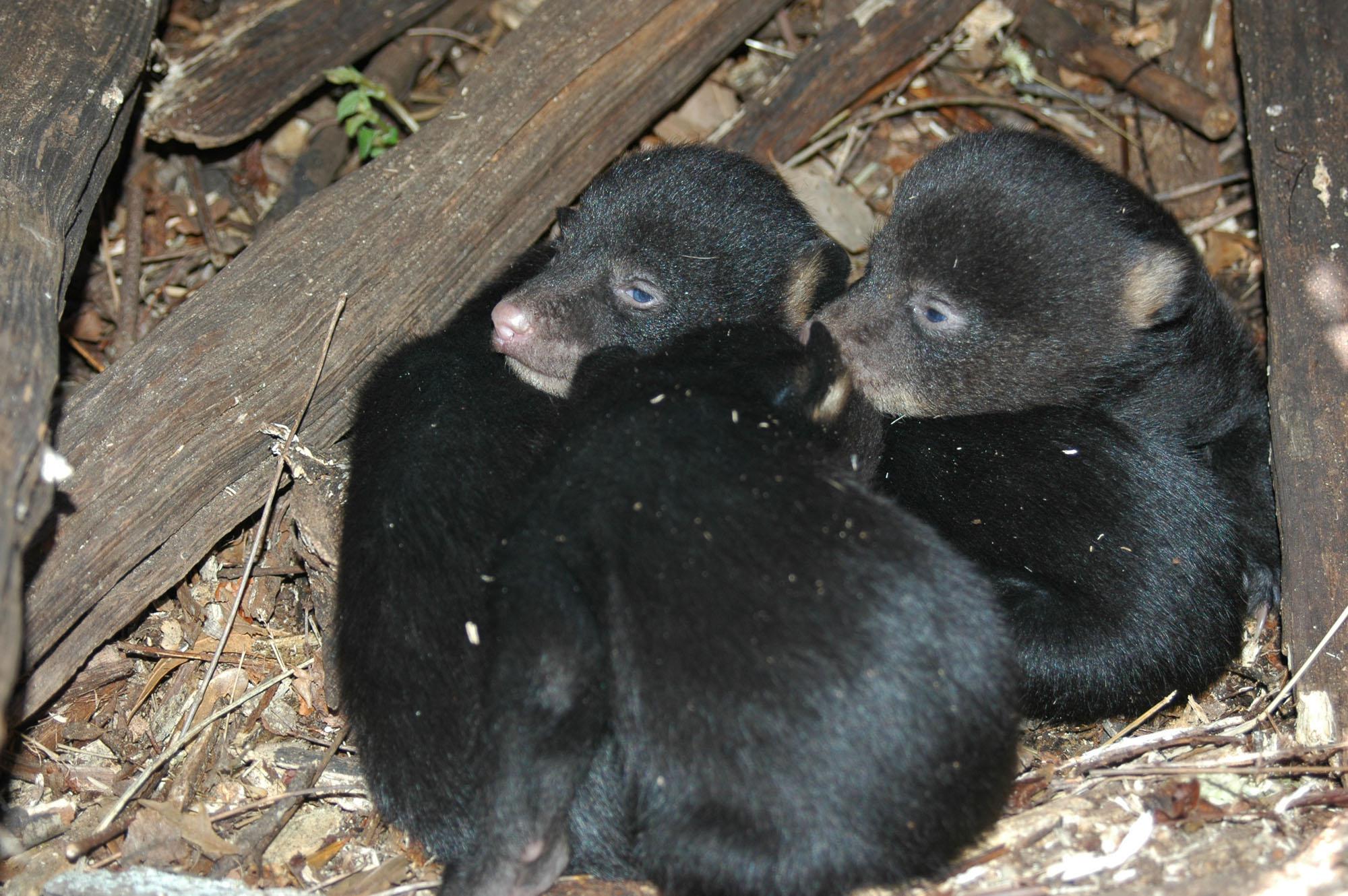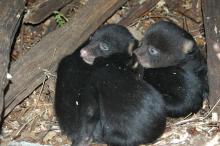Information Possibly Outdated
The information presented on this page was originally released on July 28, 2005. It may not be outdated, but please search our site for more current information. If you plan to quote or reference this information in a publication, please check with the Extension specialist or author before proceeding.
Black bear numbers rising in Mississippi
MISSISSIPPI STATE -- The fact that Mississippi has two female bears living in the state is great news to black bear biologists hoping to see a comeback of this endangered animal.
The number of black bear sightings in recent years is up in Mississippi, with most occurring in the Adams and Wilkinson county areas and some in the Delta and coastal counties. An estimated 40 to 50 black bears live in the state, and biologists are trying to increase their numbers.
Biologists are tracking six bears via radio collars in Mississippi, and the last week of July, a seventh one was detected in the state. Two of these bears are females, and one had a litter of five cubs in January. Male black bears roam widely, but females tend to stay in one area. The females making Mississippi home have encouraged those hoping to see a resurgence in the population of this once common mammal.
Don Bales, forestry associate with the Mississippi State University Extension Service, said because of very low numbers, black bears are listed as endangered in Mississippi, but have a higher population elsewhere.
“Black bears were once common throughout Mississippi and attracted some of America's most famous sportsmen to our state in hopes of taking one of these elusive creatures,” Bales said. “Due to over-hunting and loss of habitat, the black bear almost vanished from our forests.”
Bales said black bears are very shy and secretive, avoiding human interaction and keeping to themselves whenever possible.
“People start noticing bears in the area when they find a deer feeder or some dog food,” Bales said. “Black bears will take an easy meal when possible, which can lead to having a nuisance bear that someone has to deal with.”
Hunters are starting to see them in hog traps. The state has a large feral hog population. Many landowners set traps for these nuisance hogs, and at least two black bears have been captured in these small cages this year.
Brad Young, a black bear biologist with the Mississippi Department of Wildlife, Fisheries and Parks, said landowners are being encouraged to leave the tops off hog traps and check them every 24 hours. Bears can climb out with the top off, but hogs will be caught inside.
“Contact the Mississippi Department of Wildlife, Fisheries and Parks if you find a black bear, and we will handle it accordingly,” Young said.
He said since bears are such a large part of Mississippi's natural heritage, conservationists want to see their numbers rise again.
“Black bears have been absent from our natural landscape for so long that a lot of people have forgotten what a big deal they used to be,” Young said.
The goal now is conservation and public education about these non-aggressive animals.
“The more people know about them, the less likely they are to consider black bears a threat of any kind,” Young said.
There have been several recent sightings of black bears. One was caught in a wild hog trap on a Warren County hunting club and safely released after tagging. Several hunting clubs in Adams, Jefferson, Claiborne and Warren counties have reported seeing bear tracks on their property. At least one motorist in the area photographed a black bear, and one was killed by a vehicle in early 2004 along Highway 61.
Four black bears with radio collars are in the Delta. One male is in the Twin Oaks Wildlife Management Area of Sharkey County. Two males were captured in the Yazoo National Wildlife Refuge in Washington County, but since have moved 30 miles southwest. The latest bear was caught on the banks of the Sunflower River in Warren County.
The two females with radio collars are in Wilkinson County, having crossed the Mississippi River from Louisiana.
Because the animals are endangered, killing a black bear is punishable by fines up to $100,000 and a year in jail.
The Bear Education and Restoration group, or BEAR, is working to inform the public about black bears in Mississippi. The state still has large sections of excellent bear habitat, and the public is supportive of efforts to protect this endangered animal.
Contact: Don Bales, (601) 794-0671







